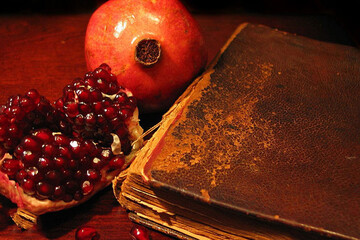'Shab-e Yalda' or 'Shab-e Chelleh' (Yalda Night) is the time when family members get together to celebrate the winter solstice. In the ceremony, people eat different kinds of foods, ranging from watermelon and pomegranate to nuts and sweets.
The colder the Yalda is, the merrier people will be as they will get together in a more cozy way.
The word Yalda, meaning birth, was borrowed into the Persian Language from the Syriac Language, spoken in Mesopotamia and other areas and the Asian Mediterranean in ancient times.
Iranians, many Iranians used to use and in some parts of the country still use, Korsi, a wooden frame that looks like a low table with a coal or electric heater underneath it and a large quilt thrown over it.
Some sources say Yalda is taken from Islamic times. In pre-Islamic Zoroastrian tradition, the longest and darkest night of the year was a particularly inauspicious day. The rituals practiced during the night were originally customs intended to protect people from the evil of the prolonged darkness.
After thousands of years, Iranians still have kept the tradition of gathering at the elders’ homes, particularly their parents, in order to celebrate any happy gatherings, including the Yalda feast.
Reading the poems of renowned Persian poet Hafez is among the customary traditions in which Iranians are interested. They open the divan of Hafez and make a wish.
Yalda is not just for Iranians; a number of other nations, including Afghanistan, Tajikistan, Turkmenistan, and Uzbekistan, celebrate the longest night of the year for centuries.
Yalda Night was officially added to Iran's list of National Treasures during a special ceremony in 2008.
Iran submitted the Yalda portfolio to be registered on UNESCO's list on 19 March 2015.





Your Comment